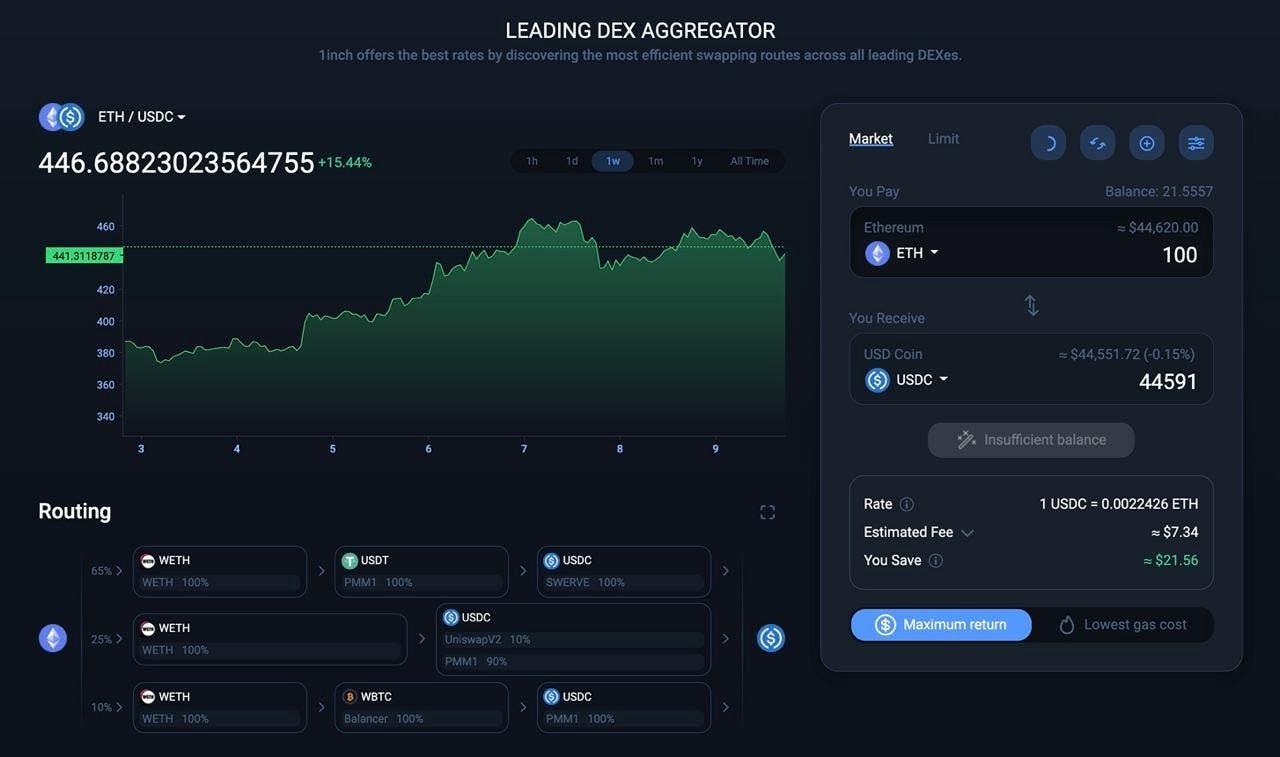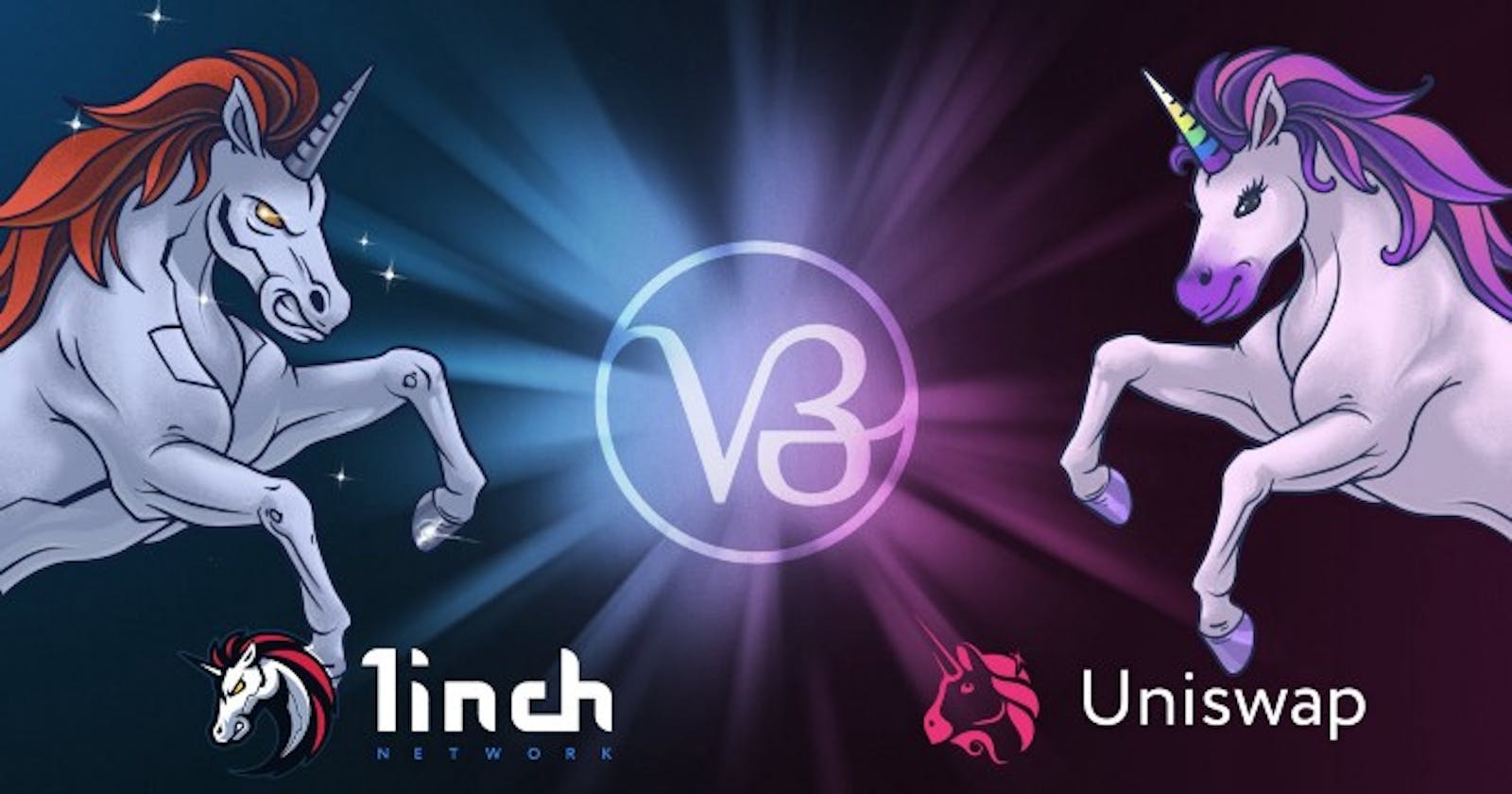DEX VS DEX Aggregators - The Difference.
"This is a war to end all wars" - Woodrow Wilson
THE CONCEPT OF DECENTRALIZED EXCHANGES
 Source: Shubham Dhage on Unsplash
Source: Shubham Dhage on Unsplash
Decentralized Exchanges(DEX) became popular in the summer of 2020 as Decentralized Finance(DeFi) platforms were built and deployed. The total volume locked in DeFi at the beginning of 2020 was $770 million, and it rose by 2107% to $17 billion. This marked the beginning of fast track growth of DeFi platforms, especially decentralized exchanges. As of the time of writing, April 12, 2022, the trading volume of decentralized exchanges is $3.17 billion.
So what are decentralized exchanges exactly? Decentralized exchanges are platforms built on distributed ledgers/blockchains(e.g., Ethereum and Binance Smart Chain) where tokens are exchanged, without the need of an intermediary, a major difference between DEXs and centralized exchanges(CEXs).
Decentralized exchanges are divided into three based on the system by which they operate; They are:
- Automated Market Makers(AMM) DEXs.
- Order Books DEXs.
- DEXs Aggregators.
Examples of DEXs functioning on Automated Market Makers are Uniswap, SushiSwap, Pancakeswap, Honeyswap, and Curve Finance. DEXs based on order books are dYdX, ApolloX DEX, Serum DEX, Injective Pro, and so on. You can read about the first and second types of exchange here. In the next section, the concept of DEX Aggregators will be discussed with their underlying benefits.
DEX AGGREGATORS
 Source: Alina Grubnyak on Unsplash
Source: Alina Grubnyak on Unsplash
Decentralized exchanges operating with AMMs and order books have proved themselves useful in the DeFi world, but they had the problem of low liquidity and were ideal for small or medium transactions, not profitable for large transactions. Also, high slippage and gas fees were issues when performing transactions on these kinds of decentralized exchanges.
DEX aggregators solved the problem of low liquidity, high slippage, and high gas fees by being the single point of access to different decentralized exchanges. They provided a single entry point for traders to view all available order books, and prices across multiple blockchains.
DEX aggregators provide a large liquidity pool and save traders time spent looking for an exchange with enough liquidity for a particular token. Aggregators also minimize gas fees and ensure maximum returns on transactions made on various DEXs. Various DEX aggregators are already out there; the popular ones are 1Inch, Matcha, OpenOcean, Paraswap, Kyber Network, Finxflo, and many others.
Advantages of Using DEX Aggregators
More Trading Options: DEX aggregators provide access to various decentralized exchanges, even those whom traders might not know of. At the moment, 1inch, a popular DEX aggregator, has over 120+ decentralized exchanges with which it enables traders to make transactions. With this number of decentralized exchanges across various blockchains, 1Inch provides more trading options to its users.
Efficiency of Capital: Aggregators give the options of maximum returns or low gas fees, allowing traders to decide how best to spend their money. 1Inch is a DEX aggregator that provides these two options, as shown below👇.

- Minimize Price Slippage: Slippage is the price difference between when a trade is submitted and when it is executed on the blockchain. Traders dislike slippage as it results in loss of money most times. The picture below is a transaction exchange ETH for DAI. It's stated in bold letters that you'll receive 3089 DAI for 1 ETH, but upon execution, you may receive 3070 DAI or 3090 if you're lucky due to slippage. DEX aggregators reduce slippage in price by breaking large transactions chunks into smaller parts, thereby lessening the slippage effect.
Conclusion
 Source: Etienne Girardet on Unsplash
Source: Etienne Girardet on Unsplash
In this article, you have learned about the concept of DEX and DEX aggregators, how they differ, and the advantage of aggregators over a single DEX. The bottom line is if you're making small to medium transactions, a single DEX may be your preferred choice. But if you're making a large trade, DEX aggregators like 1inch should be your choice.
That's all for now, you can reach me on Twitter for more suggestions or corrections.

